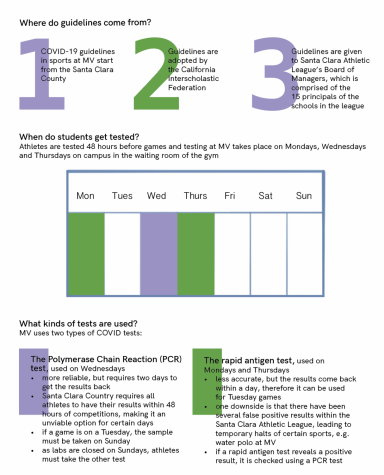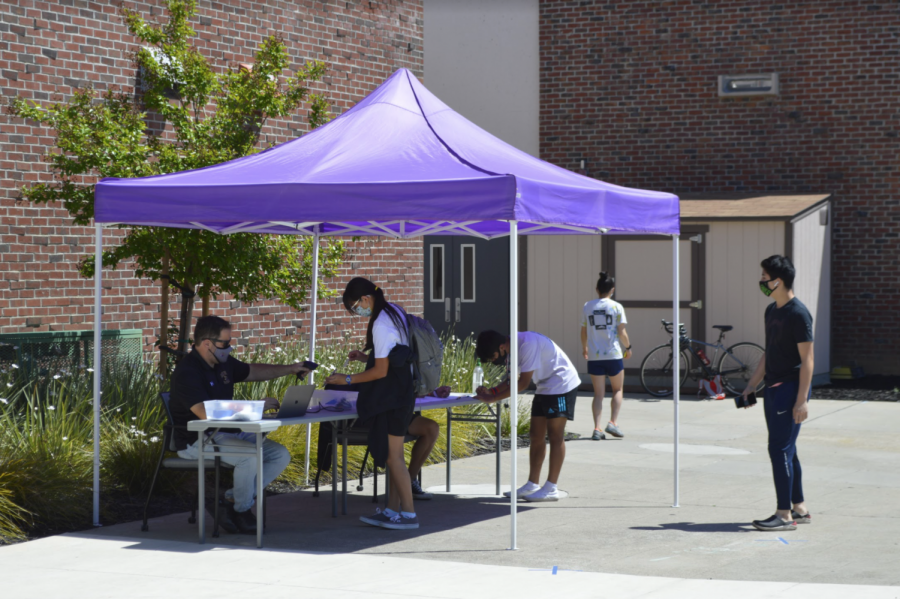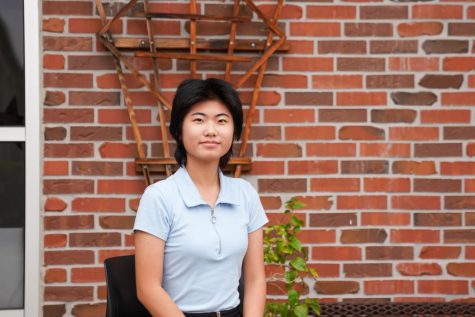COVID-19 precautions in sports
Athletes are tested regularly, wear masks and distance when possible
Athletes line up to get their QR badge scanned so they can enter the waiting room of the gym and receive a COVID test.
May 21, 2021
Mask wearing. Physical distancing. Hand hygiene.
According to Athletic Director Nick Bonacorsi, these are the “three fundamental elements for all sports” during the COVID-19 pandemic.
In most cases, the three elements are followed to a tee. However, certain standards must be adjusted for different sports — for example, wearing masks while playing aquatic sports is not possible.
According to sophomore and Varisty Water Polo player Jamie Louie, although athletes can’t wear masks in the water, they wear them anytime they are not in the pool. Additionally, like most sports on campus, the Water Polo athletes get tested for COVID-19 twice a week.
Regular COVID testing applies to all indoor and outdoor sports, excluding non-contact sports such as track and field or golf. There are also some special cases of athletes not requiring testing — for example, for senior and Varsity soccer player Ayush Uniyal.
Earlier in the season, Uniyal had COVID-19, causing dead virus particles to remain in his body as a result. COVID tests can detect these inactive fragments for up to 90 days — therefore, his doctor recommended him to not get tested.
Even when testing isn’t required, other procedures are followed tightly, according to freshman and track and field member Rahul Shankar.
Shankar, who plays discus and shotput, says that although he and his teammates haven’t gotten tested, he believes they do a good job of preventing the spread of COVID-19. Masks are always required and the runners are spaced out six feet apart on the track. The athletes also train with weights, which they bring outside the gym to use and disinfect before putting them back every time.
As a freshman, Shankar finds he has no normal season to compare his experience to and isn’t aware of what regular meets look like.
“I was looking forward to freshman year being on campus, but I’m not really mad about it,” Shankar said. “It’s fine, sports are still happening, everything is slowly coming back together.”
Like Shankar, Uniyal isn’t bothered by the procedures since he recognizes their importance.
“Obviously, I thought it was a little tedious at first,” Uniyal said. “But after [COVID-19] actually seemed to spread at [MVHS], I was a lot more [compliant] with doing it.”
On the other hand, Louie admits she doesn’t enjoy the process of going through COVID testing. Although she says her family wouldn’t be too bothered if testing was not required, she recognizes that other families do care.
“It’s annoying,” Louie said. “You have to schedule everything, not just around your sport, but [also] around testing. But it is necessary. I think it would just put everyone at more ease to know that I’m not sick, I’m not putting anyone else at risk … And if it means that we can continue playing and with everyone safe, then you gotta do what you got to do.”



















